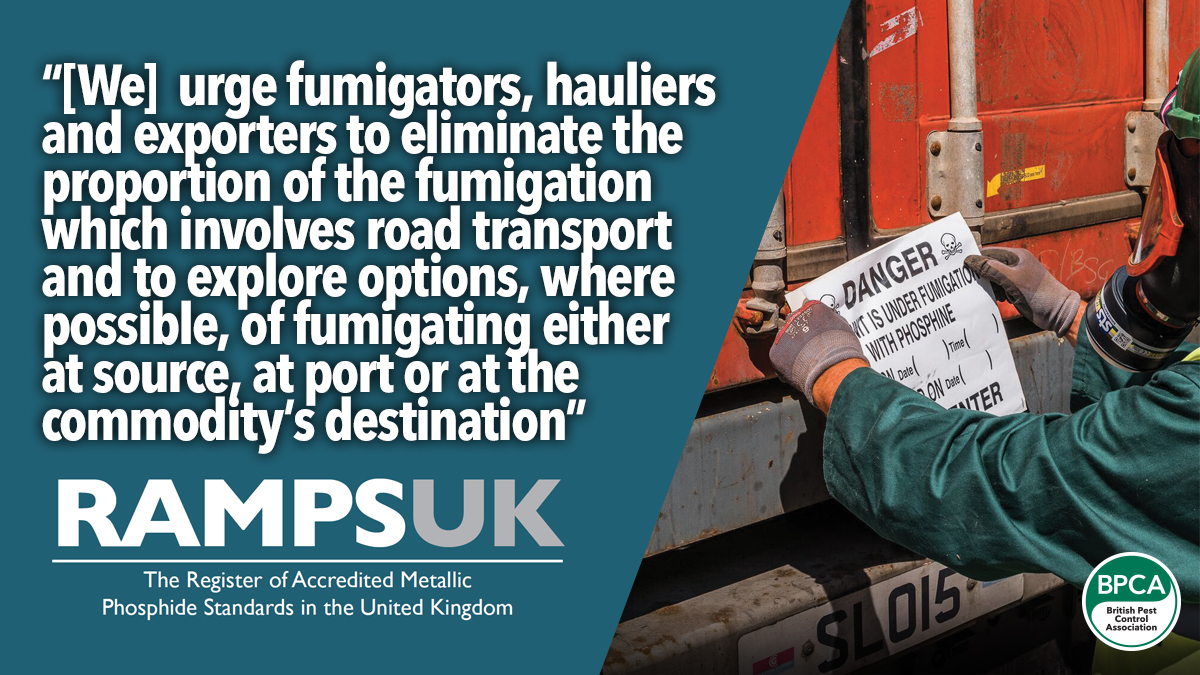The Register of Accredited Metallic Phosphide Standards (Ramps) UK has issued a warning regarding in-transit fumigation, following talks with the Health and Safety Executive (HSE).

Metallic phosphides are widely used as a biocide, to protect goods and prevent the spread of invasive pest species during transit of those goods between countries.
In 2015, during the re-registration for metal phosphide use as a plant protection product, it was deemed safe to perform fumigations providing a 5-metre exclusion zone was applied to the active fumigation to protect workers, operators and members of the public from toxic gasses.
This mandatory exclusion zone meant that the practice of ‘’in-transit fumigation’ came under closer scrutiny and, following talks with Ramps UK, has now been deemed unsafe by HSE.
In-transit fumigations take place predominantly in shipping containers while they are being transported. This includes the proportion of the container journey by road.
Since the driver of a lorry transporting a fumigated shipping container sits well within the exclusion zone, the HSE were asked to comment on whether this remained a safe practice.
Ramps UK entered into detailed discussions with HSE and the talks were concluded in 2019 with HSE giving the following statement concerning in-transit fumigation by road:
“A safety zone would be very difficult, if not impossible, to maintain around a moving container on the back of a lorry... we are unable to confirm how such a practice could be safely undertaken and therefore cannot endorse it.”
RAMPS UK are therefore urging fumigators, hauliers and exporters to eliminate the proportion of the fumigation which involves road transport and to explore options, where possible, of fumigating either at source, at port or at the commodity’s destination.
In the meantime Ramps UK continue to hold discussion with HSE and the approval holders Detia Degesch to explore the possibility of amending the current authorisations so that an assessment can be conducted specific to this use and, if it can be demonstrated that it can be undertaken safely, to amend the authorisation conditions so that that transporting fumigated containers by road can be permitted.
You can download the RAMPS Bulletin 12 here.
QUESTIONS?
If you have any concerns or queries about the information above, please contact RAMPS.
01335 301202
www.ramps-uk.org

Source: RAMPS press release